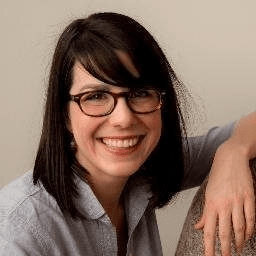
Program Coordinator, Research Training Centre
Hospital for Sick Children.
Monika Schmidt, ASHG: How can trainees get involved in your field while doing research?
Dr. Dalgleish: Get involved in organizing professional development programs. At my research institute, the Trainee Career Development Program is almost entirely run by and for students and fellows, while I take an advisory role.
Trainees are increasingly working to create for themselves the professional and career development opportunities they want to see offered, and doing that work is a great way to build toward running larger programs like I do.
I also do a lot of research funding administration: running scholarship and fellowship competitions, helping people apply for funding from the government, agencies, or foundation. For those moving into a trainee advisory role of research funding administration position, seek out opportunities like writing scholarship and fellowship applications, helping your PI write grants, and teaching junior students how to navigate the funding scene.
ASHG: You transitioned from an academic career in the humanities to your current position. How did you do this?
Dr. Dalgleish: My PhD is in the humanities, and we typically get our graduate funding from teaching. Partway through my degree, the faculty of graduate studies at my university decided to hire a PhD student to write a white paper about graduate professional development that would launch the creation of a university-wide program. I was already interested in professional and career development issues, and so I applied for the position and spent a year researching instead of teaching.
At the end of that academic year, the faculty had a full-time position come open doing similar work, and I got it. I finished my PhD part-time while working for the university doing research funding administration and launching the graduate professional development program. I now do the same work at the SickKids Research Institute.
Melissa: “My PhD is in the humanities, and we typically get our graduate funding from teaching. Partway through my degree, the faculty of graduate studies at my university decided to hire a PhD student to write a white paper about graduate professional development that would launch the creation of a university-wide program. I was already interested in professional and career development issues, and so I applied for the position and spent a year researching instead of teaching. At the end of that academic year, the faculty had a full-time position come open doing similar work, and I got it. I finished my PhD part-time while working for the university doing research funding administration and launching the graduate professional development program. I now do the same work at the SickKids Research Institute.”
One piece of advice to your former trainee-self?
ASHG: What one piece of advice would you share with your former trainee self?
Dr. Dalgleish: Don’t assume that you’re going to become a professor or a PI. Work to find ways to fit career exploration and skill building into your graduate studies. It’s easy to get emotionally invested in the idea of becoming a full-time academic researcher, and that can have negative impacts on your decision-making…and your ability to transition smoothly into a post-PhD career that you find fulfilling.

DON’T take a postdoc as a way to give yourself more time to explore other careers. It puts you behind financially and you lose practical experience time.
DO make time to explore other careers and develop new skills that will be useful in a research or in a non-academic career. This will broaden your horizons to make life and career building post-PhD less stressful.
Want more interviews? Join the ASHG Trainee Forum to keep up with new ones!
